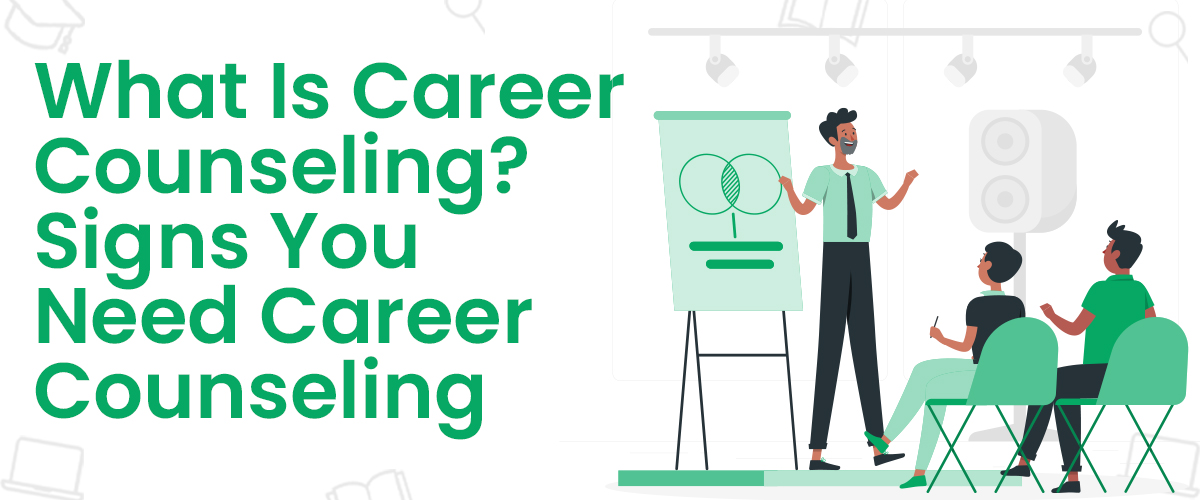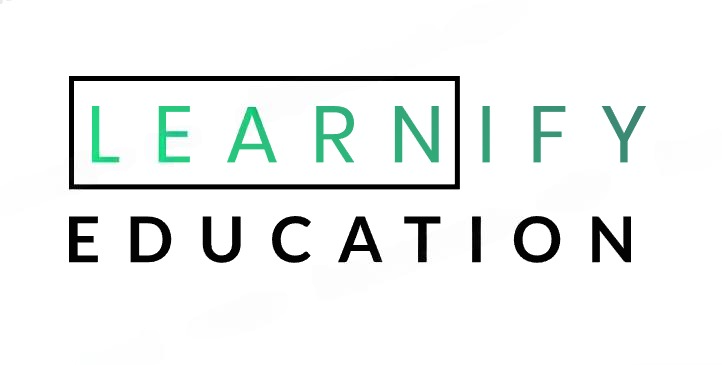











Compare India's leading
universities on a single platform
within two minutes.
- Online MBA for job professionals 100 + Universities
- 30X comparison factors
- Free expert consultation
- Quick Loan facility
- Post Admission Support
- Learnify Exclusive Community
- Job + Internship Portal
What Is Career Counseling? Signs You Need Career Counseling
- No-Cost EMI From ₹5100/-
- Subsidy Available upto ₹20,000/-

Career decisions can be some of the most important choices in a person’s life. Whether you’re unsure about your next career move, seeking job satisfaction, or simply wanting guidance on your career path, career counseling can help you navigate through the complexities of your professional life. But what is career counseling? And how do you know if it’s time to seek professional advice? In this post, we will explore what career counseling is, the signs you need it, and how it can benefit you.
What Is Career Counseling?
Career counseling is a professional service that provides individuals with the tools, strategies, and support needed to make informed decisions about their careers. It helps you evaluate your strengths, skills, interests, and values to identify suitable career paths. Career counseling also supports individuals in navigating career transitions, exploring new opportunities, and achieving long-term career satisfaction.
Career counseling is not just about finding a job—it’s about aligning your professional life with your personal goals and aspirations. A career counselor works with you to assess your abilities and match them with potential career options, while also helping you improve essential skills such as decision-making, networking, and communication.
Key Benefits of Career Counseling:
- Guidance in career exploration: Helps you explore different career options based on your strengths and interests.
- Skills and strengths assessment: Provides an in-depth analysis of your skills, personality, and abilities.
- Job search support: Assists with finding job opportunities, enhancing your resume, and preparing for interviews.
- Goal setting and career planning: Helps you establish long-term career goals and create an actionable plan to achieve them.
Why Do You Need Career Counseling? Signs You Need Career Counseling
Many people are unsure about when to seek career counseling. While there’s no one-size-fits-all answer, there are clear signs that suggest you could benefit from professional guidance. Let’s explore the key signs you need career counseling.
1. You Feel Stuck in Your Current Job
One of the most common reasons people seek career counseling is feeling stuck in their current role. If you’re experiencing a lack of growth opportunities, feel unchallenged, or are dissatisfied with your job, it may be time to reassess your career direction. What is career counseling? It’s a way to break free from this stagnation and figure out the next steps for growth and fulfillment.
A career counselor can help you:
- Identify barriers to career advancement.
- Explore alternative career paths that align with your skills and passions.
- Create a plan to pursue new opportunities that offer growth and satisfaction.
2. You’re Unsure About Your Career Path
If you’re constantly questioning your career direction, you might be at a crossroads. Whether you’re fresh out of school or considering a career change, career counseling can provide the clarity you need to make informed decisions. A counselor can help you evaluate your skills, passions, and values, guiding you toward a career path that suits your personality and goals.
Signs of confusion about career direction may include:
- Constantly changing career goals or interests.
- Feeling unmotivated or uncertain about your career decisions.
- Difficulty deciding between different job offers or career paths.
3. You Want to Change Careers or Industries
Sometimes, the career you started with is no longer fulfilling. If you’re considering a career change, career counseling can be incredibly valuable in helping you identify transferable skills and explore new career options. Whether you want to move to a different field or find a job that better aligns with your values, a counselor can assist you in navigating the transition smoothly.
Career counseling can help you:
- Assess your existing skills and how they apply to different roles.
- Develop a strategy for acquiring new skills if necessary.
- Map out a clear transition plan for entering a new industry.
4. You’re Struggling with Job Search or Interviewing
If you’re finding it difficult to land a job or aren’t performing well in interviews, it may be time to seek career counseling. A counselor can help you refine your resume, improve your job search techniques, and prepare for interviews so that you’re more confident in presenting yourself to potential employers.
What is career counseling? It’s a service that can help you navigate the competitive job market and increase your chances of success.
A career counselor can help you:
- Optimize your resume to showcase your skills and achievements.
- Teach you how to prepare for interviews and handle difficult questions.
- Provide guidance on how to expand your professional network.
5. You’re Unhappy in Your Job
Unhappiness at work can significantly impact your overall well-being. If you’re consistently feeling unhappy, stressed, or unfulfilled in your current job, career counseling can help identify the root cause and offer strategies to improve your job satisfaction. What is career counseling? It’s a way to identify whether your dissatisfaction stems from the job itself, the industry, or other factors, and help you make informed decisions on how to move forward.
Career counseling can assist with:
- Exploring your interests and values to align your job with what you truly want.
- Finding ways to enhance your work-life balance and reduce stress.
- Determining if a career change or a new role could provide greater fulfillment.
6. You’re Facing Career Burnout
Burnout can occur when you feel overwhelmed by stress, long hours, or lack of motivation. If you’re experiencing physical and emotional exhaustion related to your job, career counseling can help you understand the underlying causes and create a plan to overcome burnout.
A counselor can guide you in:
- Managing stress and setting boundaries at work.
- Identifying changes that could help reduce burnout.
- Exploring new career options that align with a healthier work-life balance.
How Career Counseling Can Help You
Seeking career counseling provides you with a variety of tools and strategies to succeed in your career. A professional counselor can assist you with:
1. Career Assessment and Planning
Career counselors conduct in-depth assessments to understand your skills, interests, and values. Based on this analysis, they can help you develop a career plan that includes short- and long-term goals, as well as actionable steps to achieve them.
2. Job Search and Interview Preparation
Counselors offer guidance on how to find job opportunities that suit your skills and interests. They can also help you prepare for interviews by providing mock sessions and valuable tips to boost your confidence and performance.
3. Personalized Guidance
A career counselor provides tailored advice based on your unique situation, whether you’re a recent graduate, mid-career professional, or someone looking to switch industries.
4. Skill Development
If your current skills don’t match the jobs you’re interested in, career counseling can help you identify the skills you need to develop and suggest resources or courses to help you improve.
Final Thoughts
In summary, what is career counseling? It’s a valuable service that helps individuals make informed decisions, create a roadmap for success, and navigate challenges in their professional journey. If you’re feeling lost, stuck, or unsure about your career, signs you need career counseling are clear. Seeking professional guidance can give you the clarity, skills, and confidence needed to thrive in your career.
If any of the signs mentioned resonate with you, consider reaching out to a career counselor. With the right support, you can turn your career challenges into opportunities and achieve long-term success and satisfaction.


